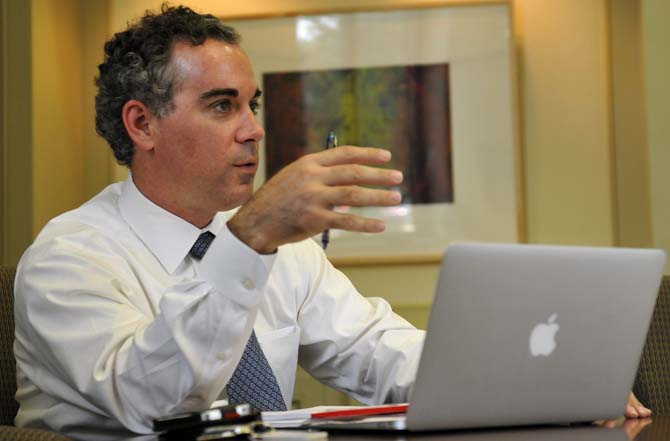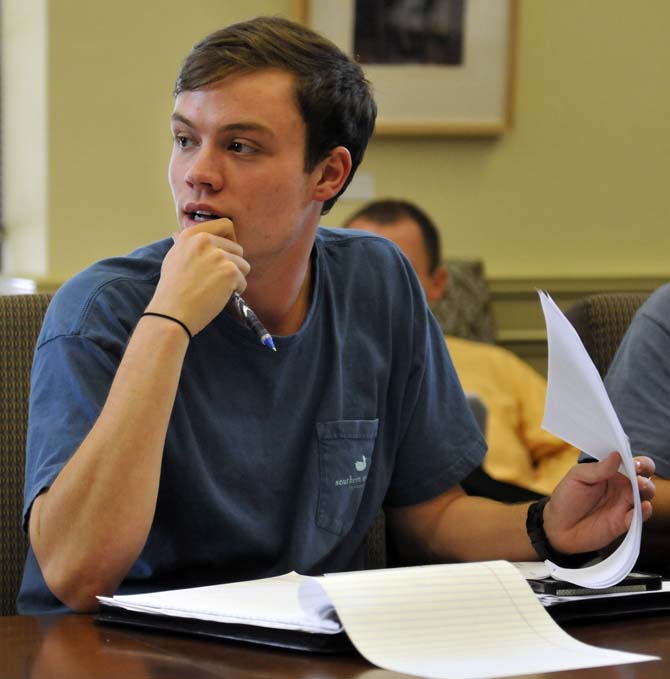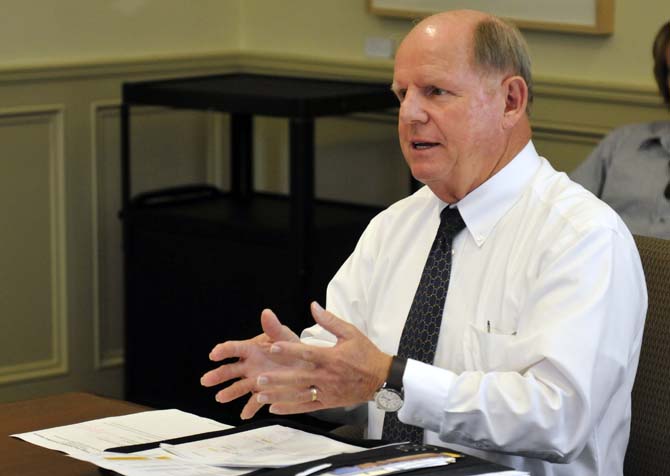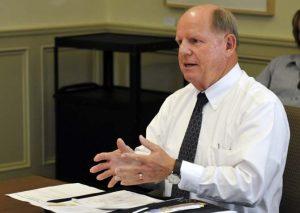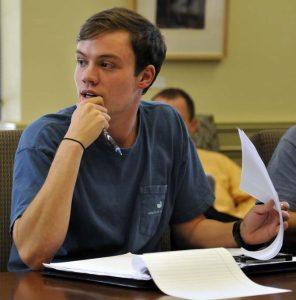University departments may be able to apply for Student Technology Fee-funded monetary awards starting in the next fiscal year.
At a meeting of the Student Technology Fee Oversight Committee on Monday, members and guests discussed opening up leftover funds for discipline-specific awards. Departments would be able to request tech fee money to purchase materials that would benefit their students in specific areas of study.
A decision may be made as early as next month, when representatives from University Information Technology Services and the Office for Assessment and Evaluation will attend the next meeting to determine if their departments need the funds. If not, the money could go to other departments.
The tech fee generates nearly $4 million a year. Until three years ago, about $1 million generated by the tech fee was made available to fund discipline-specific projects, said Vice Provost and Associate Vice Chancellor of the Office of Budget and Planning Robert Kuhn.
As the costs of services provided by ITS grew and a budget crisis loomed, the committee suspended the discipline-specific program three years ago, Kuhn said. The $1 million was shifted to support ITS operations.
“For the prior 11 years, departments and colleges had been able to come to this committee and request funding for technology,” Kuhn said.
Kuhn noted that technology is not limited to computers and includes items such as instruments for music students. Today, departments are unable to get help paying for these types of purchases from the tech fee, he said.
The demand for discipline-specific funding has not disappeared, though. Student Government President Taylor Cox said student organizations and departments have asked him how to apply to receive tech fee money.
“I’ve had people who have already approached me about trying to apply for funding from this committee,” Cox said.
Eric Monday, vice chancellor for Finance and Administrative Services and CFO, said $350,000 of tech fee funds is uncommitted for the current fiscal year, which ends in June 2013. The committee, however, has not yet opened this money up for discipline-specific project appeals.
“This committee can vote to allow that to stay in the account and have $350,000 for the spring or $350,000 that can be used next year, or we can look at things that you can very quickly approve and spend those funds in this fiscal year,” Monday said.
Kuhn noted that making discipline-specific funding available now may encourage vice chancellors and deans to compete for a relatively small amount of money.
“Remember, all politics is local, so every department is looking out in expressing what they need,” Kuhn said. “So when you have 70-something departments plus student organizations, et cetera, then when they all come in, someone has to make the decisions, in terms of priorities, where that money is spent.”


